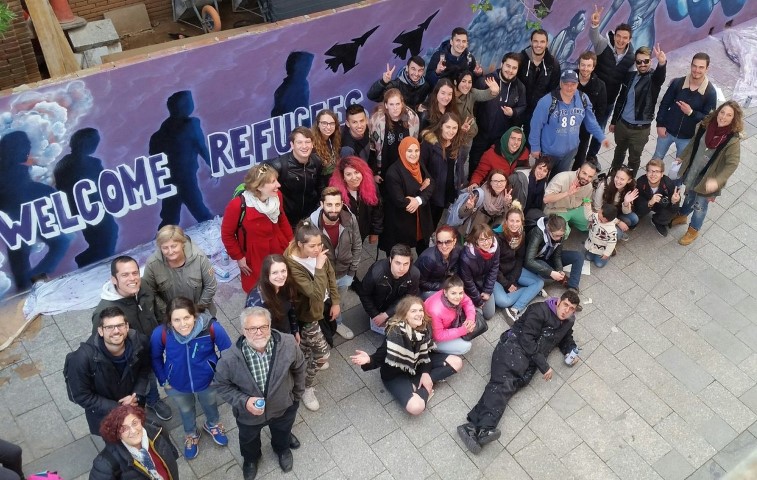Initial hypotheses
Research hypotheses of the APPlying Mentoring project are presented below:
1
Social mentoring programs in Spain aiming at the inclusion of immigrant and refugee population, as a whole, do not apply many characteristics that scientific research has identified as being most effective.
2
Greater regularity and proximity in the couple’s encounters and the promotion of meaningful conversations which connect with a positive development of foreign origin people have very relevant consequences for their social inclusion and for the promotion of interculturality.
3
The creation of a stable digital application (Messagenes MentorApp) and a guide for professionals on the elements that improve the efficacy of programs would facilitate better monitoring, evaluation and reformulation of social mentoring programs that work with immigrant and refugee populations.
Research aims
This project aims at:
IDENTIFICATION
Identifying social mentoring programs in Spain and knowing their main characteristics.
DESCRIPTION
Describing which of the characteristics of mentoring programs have greater effectivity according to the scientific literature in terms of the social inclusion of immigrant and refugee people.
ANÁLISIS DE IMPACTO
Analyzing the impact of some of these programs such as Nightingale (Rossinyol / Ruiseñor / Urretxindorra), enTandem, Referents, and the Catalan Program for Refugees.
DESIGN
Designing technological tools that allow the monitoring, data collection and evaluation of these programs.
Mentoring experiences to evaluate
Nightingale Project
Mentoring programs in which university students accompany teenagers of immigrant or refugee origin (9-15 years) out of school hours.
Its main objective is to generate high educational expectations, foster the social use of Catalan, and promote a positive development and welcoming context for adolescents who are newcomers or from immigrant families. At the same time, university students learn intercultural skills and develop a more accurate view of the cultural diversity of the society in which they live and work.
Although the beginnings of this project date back to 1997 in Sweden, in Spain, the Nightingale project (Rossinyol) began in 2005 at the University of Girona and is currently being carried out in different territories such as Barcelona, Tarragona, Guipúzcoa, Navarra and Granada.
EnTandem Project
Its objectives are to stimulate autonomy, personal self-esteem and to motivate interest in studies among young people and children who have a situation of personal or social difficulty.
The mentor is a university volunteer who acts as a reference. The enTandem project began in 2008 and is being carried out in Barcelona, Santa Coloma de Gramenet and Barberà del Vallès.
Referents Project
Mentoring programs in which youth of immigrant background (18-23 years) who were in foster care are accompanied by adults in the transition to early adulthood.
The Referents program focuses on youth (18 to 23 years old) who were in foster care, the vast majority of whom are of foreign or refugee origin. This program of the Punt de Referència Association accompanies young people who have lost their homes in their emancipation process, supporting their daily actions and the assistance they need in order to be successfully emancipated. Mentors are usually by their side to offer them, through confidence and proximity, the necessary learning to succeed.
Catalan Program for Refugees
Social Mentoring for Refugees
The Department of Employment, Social Affairs and Families of the Generalitat of Catalonia began the deployment of its own Catalan program of care for refugees in 2017. This program presents a change of model with respect to the State’s welcoming program since, in addition to the basic aids and the support of the professionals, they also count on the accompaniment of a group of mentors. These volunteers support them in their social and labour inclusion process in many ways.

